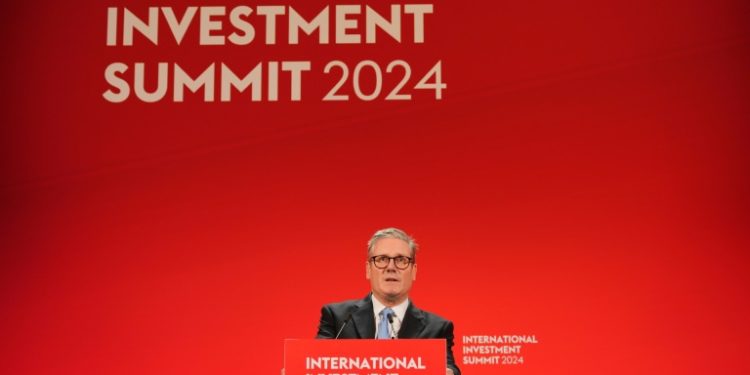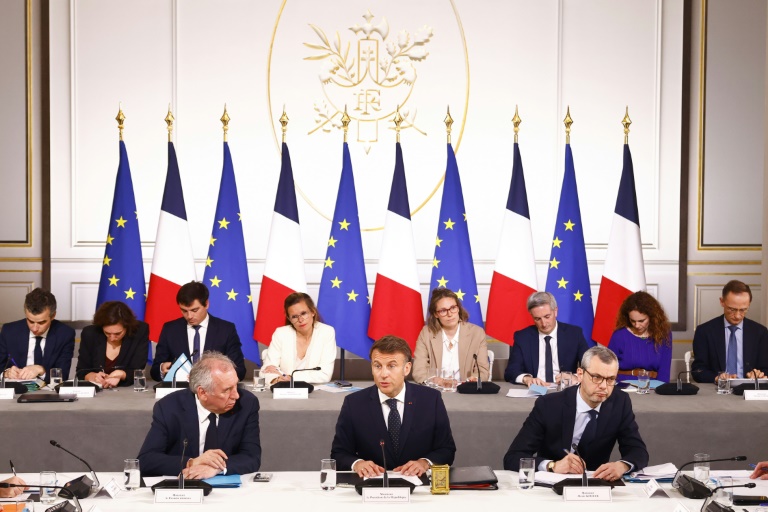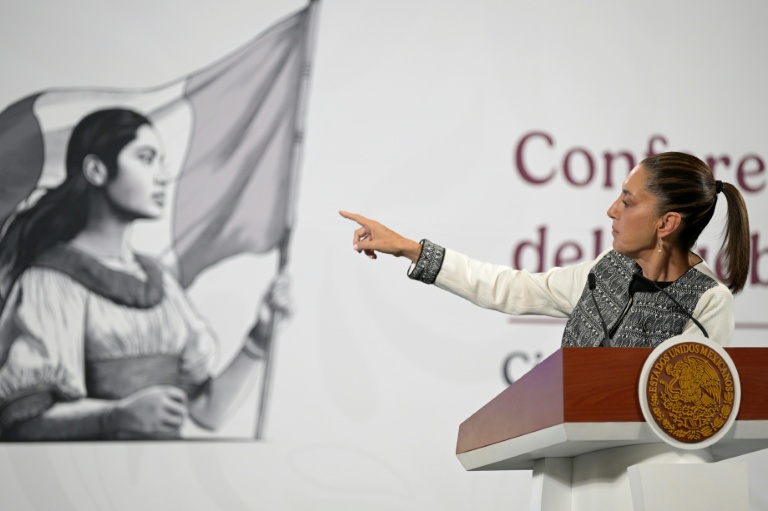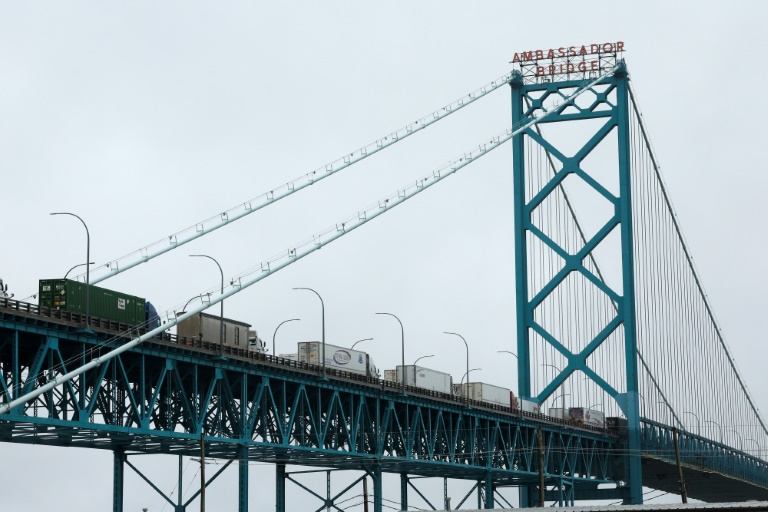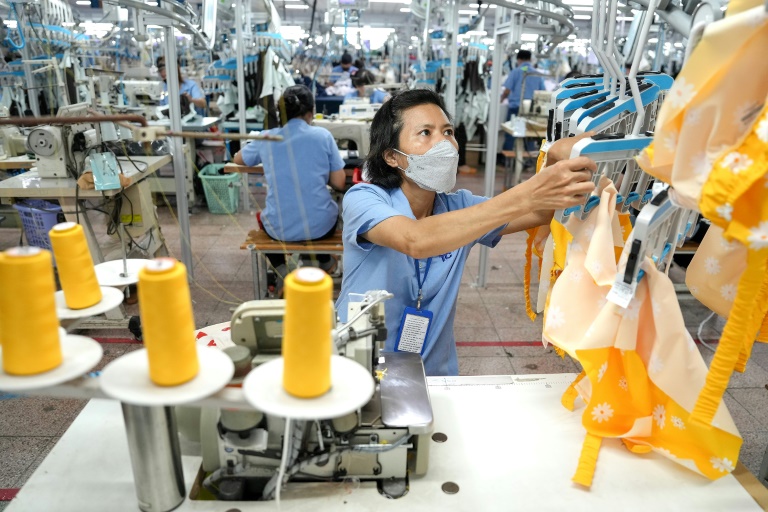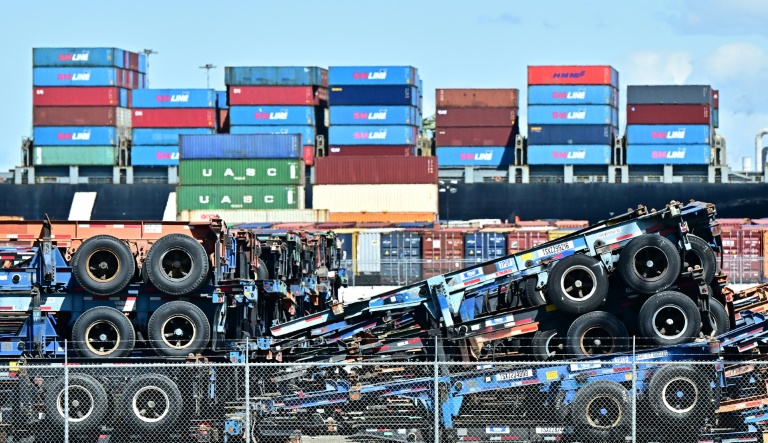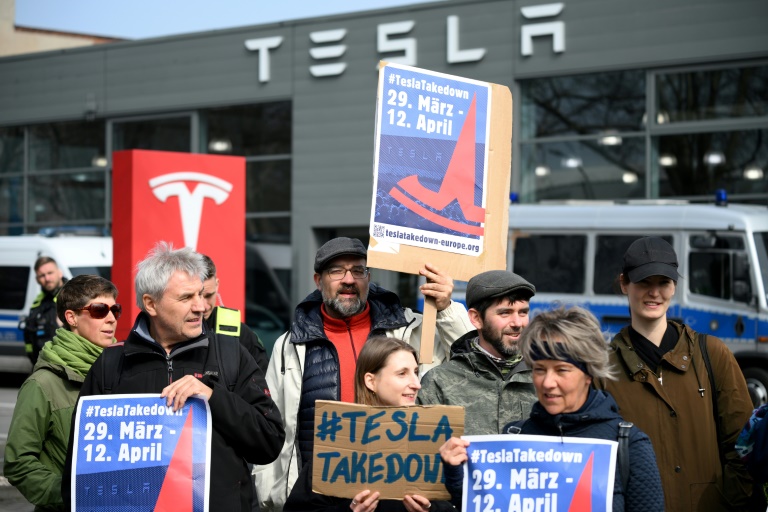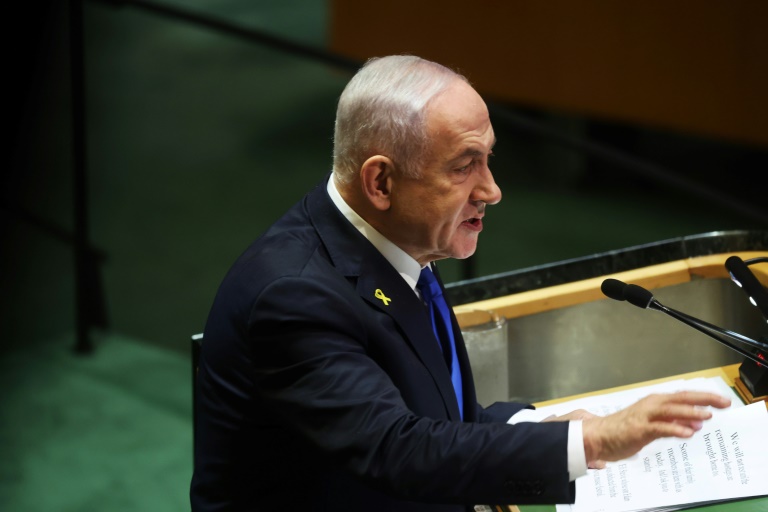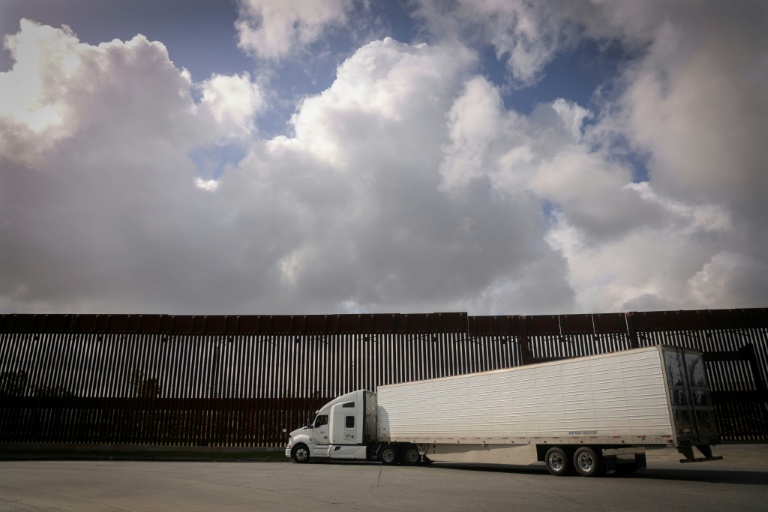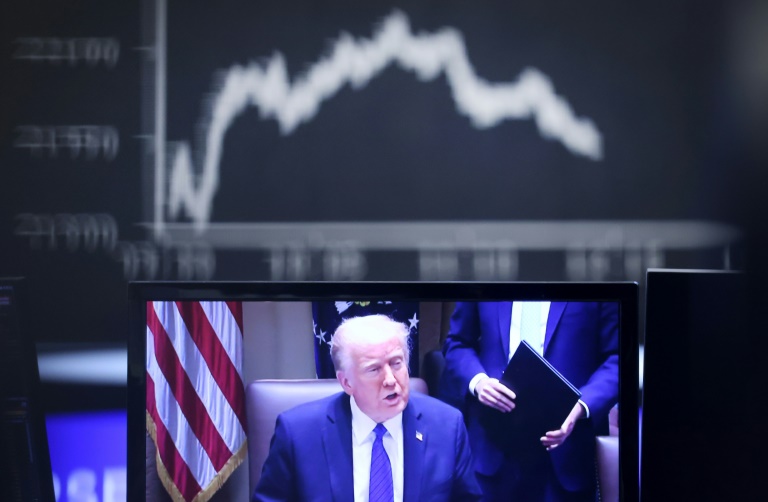London (AFP) – Prime Minister Keir Starmer on Monday told global business leaders it was “time to back Britain,” as he hosted a summit aimed at securing much-needed funds to fuel economic growth after post-Brexit chaos. Starmer told captains of industry that his recently elected Labour government would “rip out the bureaucracy that blocks investment” and pledged to slash red tape. The premier — treading a tricky path to be both pro-business and also pro-worker, with a series of new workplace safeguards for employees — has placed great importance on the International Investment Summit in London.
The government said the summit had helped raise £63 billion ($82 billion) of foreign investment in UK projects, which the government hopes will overshadow its chaotic build-up. Most of that investment had already been announced earlier, however. Starmer won a thumping majority in July’s election but has seen his government’s popularity plummet following a series of missteps, with a recent YouGov poll showing only 18 percent of respondents approved of its performance.
The prime minister said his focus was “not the days or hours of the news grid” but on the “golden opportunity” that his electoral victory presents for delivering his central mission of growing the UK economy. “Private-sector investment is the way we rebuild our country and pay our way in the world. Make no mistake, this is a great moment to back Britain,” Starmer said. He promised that where regulation was currently “stopping us building the homes, the data centres, warehouses, grid connectors, roads, train lines, you name it, then mark my words –- we will get rid of it.”
“We will rip out the bureaucracy that blocks investment,” he added, promising that his administration “will make sure that every regulator in this country” takes growth “as seriously as this room does.” Starmer said he was “determined to repair Britain’s brand as an open, outward-looking, confident trading nation.” Ministers had already unveiled £24 billion ($31.4 billion) in green energy projects, including £12 billion by Spanish giant Iberdrola and £8.0 billion by Danish firm Orsted.
In new announcements Monday, US firms CyrusOne, ServiceNow, CloudHQ, and CoreWeave said they would spend $6.3 billion to build data centres. Manchester Airports Group announced £1.1 billion for expanding Stansted Airport.
The build-up to the summit was dominated by criticism over its organisation, a failure to attract top names, and a row involving shipping company P&O’s Dubai owners DP World that put a £1 billion investment project in jeopardy. DP World chairman Sultan Ahmed bin Sulayem threatened not to attend the summit after transport minister Louise Haigh and Deputy Prime Minister Angela Rayner called P&O’s employment practices “unscrupulous” and “exploitative.” Last-ditch talks with the UK government ensued, and DP World revealed that the P&O investment to expand a London container port would go ahead.
While around 200 private-sector executives were expected to attend, many multinational bosses and tech titans decided to give it a miss. Even the opportunity to meet Britain’s head of state King Charles III at the closing reception on Monday evening failed to entice them. The timing of the summit — two days after Labour clocked its 100th day in office — has also caused unease. In two weeks’ time, finance minister Rachel Reeves delivers Labour’s first budget, when businesses are steeling themselves for a possible rise in capital gains tax. Reeves told the summit she would cap corporation tax at 25 percent for the entire five-year parliament.
© 2024 AFP

